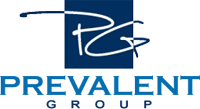Most job seekers put so much time and effort into preparing their resumes, targeting their ideal employers, and brushing up on their interviewing skills that they forget one of the most important steps in the process: reference checks. Taking the time to prepare your references can have a significant impact on your ability to land your ideal position.
While it is true that many employers don’t conduct thorough reference checks, there has been a push in recent years to focus more on this step of the hiring process. Employers are looking to improve their retention rates, and they are starting to understand the value of references. As a job seeker, you should never underestimate the potential positive impact of glowing references, or conversely, the potential negative impact of even a single lukewarm reference.
What are the keys to preparing for reference checks? Use this checklist to ensure that you – and your references – are ready for your potential employer:
- Leave references off your resume – Don’t use up valuable resume space on a list of references. Keep a separate list, and only provide that list when the employer requests it.
- Create a strategic list – Your references don’t always have to be former supervisors, especially if you have any reservations about what they may say. Choose references who have deep, first-hand knowledge about your skills and accomplishments. Sometimes co-workers or supervisors from other teams may make better references than a manager.
- Include a variety of categories – You want to create a list that will allow hiring managers to get a feel for your work ethic, your skills, performance on the job, and accomplishments. This will typically mean using former co-workers and supervisors, but it can also mean including mentors, personal references, customers, colleagues, supervisees, or references from your volunteer work.
- Always get permission to use someone as a reference – Never include someone on your reference list without asking for their permission. Most people will be more than happy to help, but you should always give them the courtesy of seeking their approval ahead of time. Be ready for someone to decline your request, and don’t take it personally if someone turns you down.
- Verify their contact information – Once you’ve sought someone’s approval, be sure to ask them how they prefer to be contacted. Some may not want you to use their personal cell phone number or their work email address, for example. Verify that you have the correct telephone and email once they let you know how they prefer to be contacted.
- Provide them with a copy of your resume – To ensure your references are prepared, provide them with a copy of your resume.
- Say thank you – Thank your references once they give you permission to include them on your list, and when you land a job, reach out again and thank them for their help in the process.
Always remember that references can make or break a hiring manager’s decision. Approach your reference selection strategically, and put as much thought into your list as you put into your resume, cover letters, and interview preparation.
If you are a professional in sales, marketing, engineering, IT or operations looking for new opportunities, contact The Prevalent Group today. Our team of executive recruiters can help match you with a position that aligns with your long-term career goals, and we can work with you to help you create a resume, cover letter, and reference package that will dazzle hiring managers.
